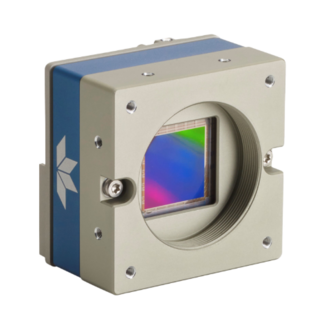Teledyne LeCroy - T3SP Time Domain Reflectometers
- True Differential and Calibrated TDR for Maximum Impedance Measurement Accuracy
- Compact, Battery-Powered Design for true portability
- 30 ps Typical Rise Time, S-Parameter support up to 15 GHz
- 50,000-point memory for DUTs up to 50 meters (XR models)
- Automatic Ohmic Loss Compensation for enhanced accuracy
- Built-in Skew Analysis (Inter-Pair and Intra-Pair) for differential signal integrity
- XR Series: Engineered for Speed, Optimized for Continuous Cable Production
Engineered for precision and speed, the T3SP15D redefines how you measure signal integrity on PCBs and cables. With calibrated differential TDRs, it delivers ultra-fast, high-resolution characteristic impedance profile analysis, both single-ended and differential. Lightweight, compact, and battery-powered (optional), the T3SP15D fits into any environment: lab, quality control, production, or field
True-Differential TDRs
Most of the modern high-speed designs are implemented with differential transmission lines. Using a true differential TDR simplifies the setup for signal integrity measurements in such designs. In some scenarios the ground connection could be difficult to connect or not accessible if you want measure unshielded twisted pair cables. Most of the time, when you take measurements using a true differential TDR a ground connection is not required and gives you the flexibility to use TDR-probes without a ground connection.
Fast TDR Repetition Rate
With up to 10 MHz repetition rate the T3SP-series is more than 300 times faster as conventional TDR instruments which are based on sampling scopes. To achieve the highest possible dynamic range TDR instruments need to acquire and average out hundreds of waveforms. The faster sampling rate delivers quicker and more accurate measurement results.
T3SP15-XR models for cable manufacturers
The T3SP15D-XR was created to provide a better alternative to production than using obsolete TDRs based on the sampling oscilloscope platform. Four new time bases were added into T3SP15D-XR, achieving two results. First, the extension of measurements to cables up to 50 m, and second, the ability to make very fast acquisitions, which is a key requirement for production. We added a repetition rate of 500 KHz, suitable for longer cables, and sampling rates of 20 ps and 40 ps, suitable for ultrafast acquisition times.
Full Calibrated Impedance Plot
Reference impedance in all TDR instruments are relative; they are made by comparing reflected amplitudes to an incident amplitude. Using full OSLT-calibration the T3SP-series is offering best accuracy for impedance measurements in time and frequency domain. Using four calibration standards (open, short, load, thru) for T3SP15D in the time domain instead of using a simple normalization which is common in TDR-instruments offers vastly improved error correction for the setup. Using OSLT calibration in the time domain avoids irregularities in impedance plots, such as ringing that occurs after the TDR incident step.
Full calibrated S-Parameter
Many of the modern standards like Ethernet or USB require you to measure the impedance matching of the cables and connectors within the frequency domain. These are the measures commonly made with traditional VNA instruments. The T3SPseries offers fully calibrated differential S-Parameter measurements up to 15 GHz (T3SP15D) using the same OSLT-calibration standards used by VNAs.
Trust, But Test—Your Cables Might Be Lying
Even premium cables can hide imperfections that introduce measurement artifacts. The T3SP Series instantly reveals cable quality, pinpointing out-of-spec sections caused by damage or defects. With up to 50,000-point acquisition, the SP Series delivers long, high-resolution TDR captures—ideal for extended DUTs. Flexible repetition rates from 10 MHz to 1 MHz support cable lengths up to 30 meters, while XR models extend this range to 50 meters with rates down to 500 kHz.
ESD-protection
High-frequency measurement devices are extremely sensitive to electrostatic discharge (ESD) and can lead to permanent damage to your measurement device. In addition, many laboratories have a requirement to take special precautions to protect their electronic equipment from any damage caused by ESD. The SP-series mitigates this risk by providing a higher degree of protection from this happening. Every SP-series model comes equipped with an ESD-protection module based on high-performance coaxial RF-switches. The ways this works is the RF input circuitry is protected by isolating the devices RF-signal detector from the input connector when the device is not being used to take measurements.
S-Parameter Measurements
The high bit rates used in modern electronics design and future serial data standards extend well into the microwave region. For example, the High-speed Universal Serial Bus (USB3.1) supports transfer rates up to 10 GB/s over twisted-pair cables. These high bit rate transmissions through connectors and cables results in considerable distortion because of channel dispersion. To keep the distortion to manageable levels, many standards specify the impedance, return loss and insertion loss for cables and connectors. These measurements are represented by the S-parameter. The T3SP series offer fully calibrated differential S-Parameter measurements up to 15 GHz (T3SP15D). This gives you the flexibility to store your output files in a variety of formats (CSV, Matlab and Touchstone) which can be easily which can be easily used in tools like SI-Studio, Matlab or other simulation programs.
Impedance Traces on PCBs
Due to increasing clock rates in high speed digital systems the necessity of controlled impedance Printed Circuit Boards (PCBs) is growing rapidly. Additionally, cables and connectors must meet high frequency design specifications and controlled impedance specifications. The T3SP-series helps you to measure wave impedances of PCBs, cables, and connectors very accurate and comfortably. In contrast to other systems on the market, the T3SP-series is designed for measuring specific traces on a PCB and for on-board tests, the TDR-Probes ensure accurate measurement for qualification testing and debugging assembled PCBs.
More Product Information








